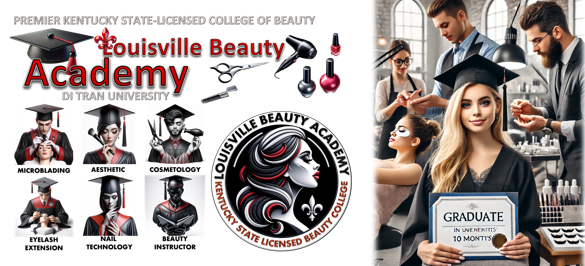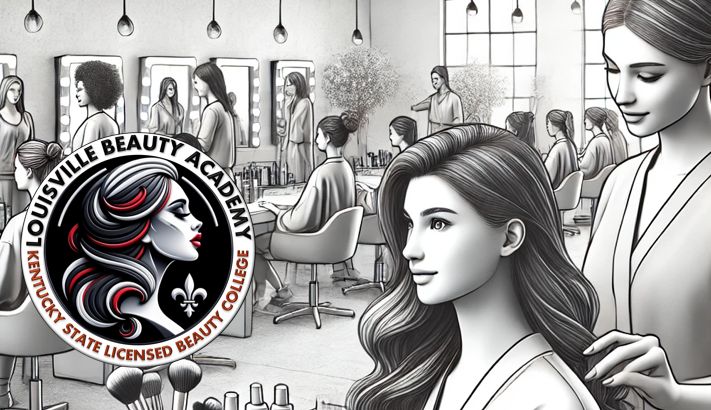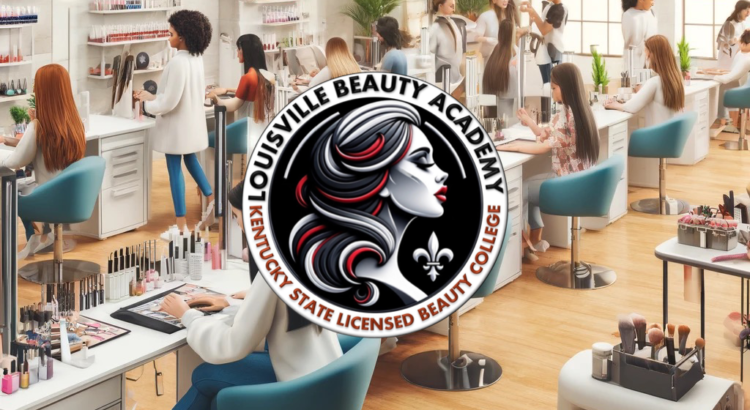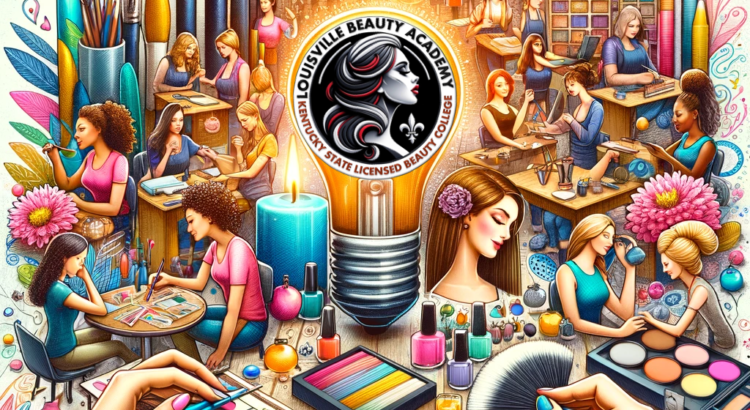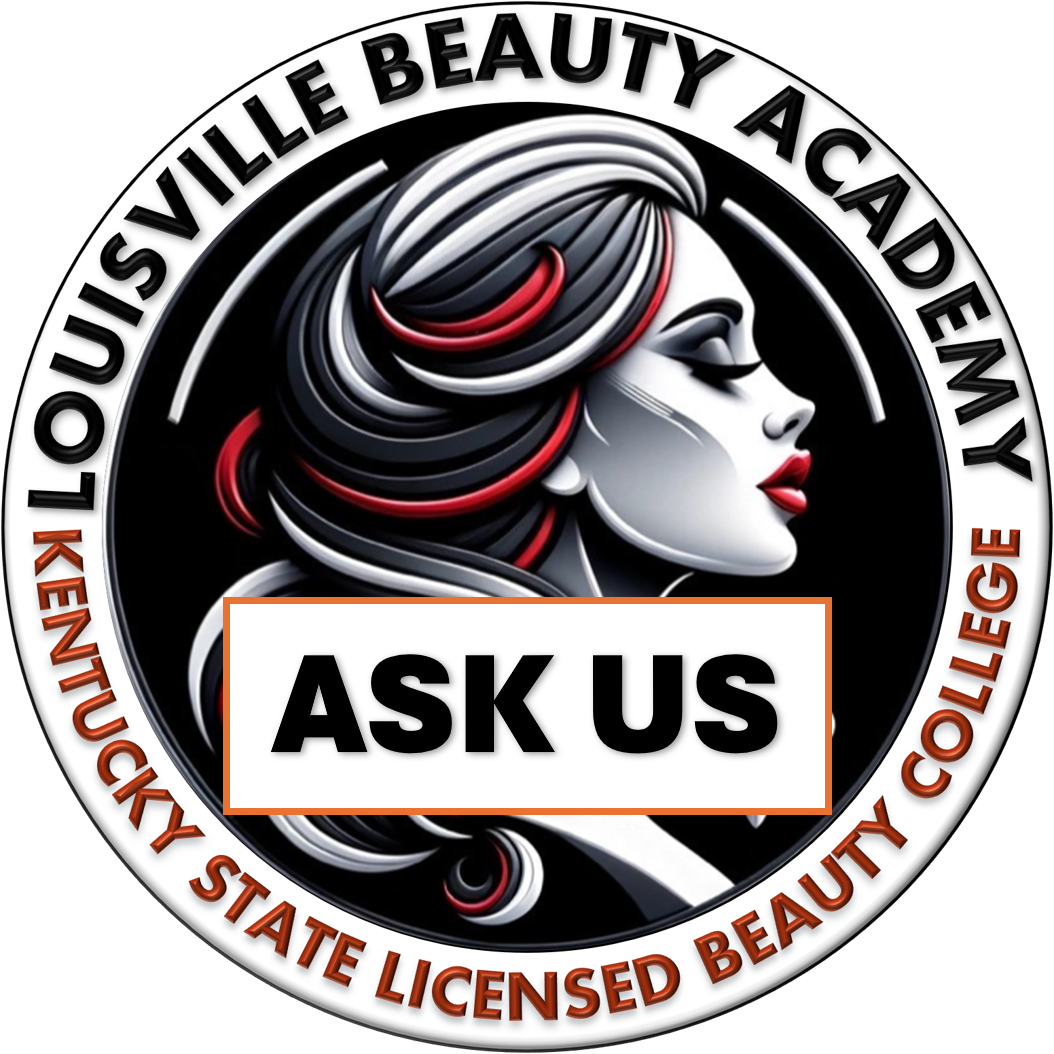The beauty industry is evolving—why waste time learning it all when specialization is the key to success? At Louisville Beauty Academy, we accelerate your career with focused, high-demand beauty licenses or a fast-track 1500-hour cosmetology program in under 10 months! 💪💄💅 #YesICan #BeautyCareer
The Case for Focused Licensing – Why Specialized Short-Term Licenses Like Shampoo & Styling, Nail Technology, Esthetics, and Eyelash Extensions Lead to Greater Success in the Beauty Industry
The beauty industry is growing at an unprecedented pace, but traditional cosmetology programs are falling behind in preparing students for real-world success. Instead of mastering a single profitable skill, students are pushed toward broad cosmetology licenses that cover everything—but perfect nothing.
The Harsh Reality: More Than 75% of Cosmetologists in Indiana Are NOT Working in the Field
According to the Indiana Professional Licensing Agency (PLA), there are 40,610 licensed cosmetologists in the state. However, only 9,730 are actually employed in the field.
➡️ Employment Rate of Cosmetologists in Indiana: ONLY 24%!
➡️ That means 76% of licensed cosmetologists are NOT working in the field.
This shocking statistic reveals a critical issue in the beauty education system—graduates aren’t getting the right training to secure stable careers. Many spend years and thousands of dollars on cosmetology school, only to end up working outside of the industry because they lack specialization.
Meanwhile, specialized beauty services—haircuts, styling, nails, esthetics, and eyelash extensions—are thriving and in high demand. So why aren’t more students training for these focused, high-paying careers instead of wasting time on broad, outdated cosmetology training?
Why the Full Cosmetology License Is Becoming Less Effective
A full cosmetology license (1,500 hours) teaches hair, skin, and nails, but most students end up using only one or two of those skills in their careers.
The Problem with the “Jack of All Trades” Approach:
❌ Too Much Time Spent on Unused Skills – Most stylists don’t do nails or skincare, yet they spend hours learning these in a cosmetology program.
❌ Longer Training, Delayed Career Start – Cosmetology school takes 1-2 years for a license, while specialized programs take just months.
❌ Higher Costs Without a Guaranteed Career – Students pay more for a longer program, but the job market rewards specialization over broad training.
Indiana’s Beauty Industry by the Numbers (March 7, 2025 Data)
Here’s the real breakdown of active beauty licenses in Indiana:
- Cosmetologists (Full License – Jack of All Trades): 40,610
- Specialized Licenses (High-Demand Fields):
- Manicurists (Nail Technology): 10,384
- Estheticians (Skincare): 4,184
- Barbers (Haircutting Only): 9,324
- Electrologists (Hair Removal & Skin Treatment): 318
- Beauty Culture Salons: 107,393
- Beauty Culture Schools: 127
The numbers clearly show that specialized licenses are thriving while traditional cosmetology careers are struggling to retain professionals.
Why Short-Term, Specialized Licenses Are the Future
Instead of spending 1-2 years in school, many students are now choosing focused beauty licenses that train them in one high-demand service:
🔹 Shampoo & Styling License
✅ Specialize in shampooing, blowouts, and styling—services that are always in demand.
✅ Quick training & licensing—start working fast!
🔹 Nail Technology License
✅ Short training, high earning potential—nail salons are booming, and independent nail artists are making big money!
✅ Low startup cost—start your own nail business easily.
🔹 Esthetician License (Skincare Specialization)
✅ Focus on facials, waxing, and skin treatments—a booming industry.
✅ Earn premium pricing for specialized skincare services.
🔹 Eyelash Extension License
✅ One of the highest-paid beauty services—lash artists charge $100+ per session!
✅ Fast training, high return on investment.
Each of these licenses takes less time to complete, costs less money, and gets students into the workforce faster.
Accelerated Cosmetology: Graduate in UNDER 10 Months!
For students who want the full cosmetology license, Louisville Beauty Academy does it differently:
🚀 1500-Hour Fast-Track Cosmetology Program—Graduate in less than 10 months instead of 1-2 years.
💡 We eliminate unnecessary breaks & delays—so students finish on time and start earning sooner!
🏆 YES I CAN Mentality! – Our students don’t just dream of a license. They achieve it FAST and get to work!
At Louisville Beauty Academy, we cut all unnecessary delays and help students complete their training as quickly and efficiently as possible. Instead of spending years in school, our graduates say:
✅ “I HAVE DONE IT!” – They finish, pass their exams, and enter the workforce quickly.
Why Choose Louisville Beauty Academy?
✅ Most Affordable & Flexible Beauty College in Kentucky & Beyond
✅ State-Licensed & State-Accredited Beauty Institution
✅ Fastest Path to Licensing – Graduate & Start Working in Months
✅ Price Match Guarantee – Find a lower tuition? We’ll match it AND give you a $100 discount!
📩 Start Your Beauty Career NOW!
📱 Text: 502-625-5531
📧 Email: study@LouisvilleBeautyAcademy.net
Legal Disclaimer:
All program details, pricing, and contracts are subject to official school policies and legal agreements. Each program and specialty field has its own legal contract, which is viewable online and discussed in detail with the school director before enrollment. Always consult with the Louisville Beauty Academy administration to confirm all terms and conditions.
📍 Louisville Beauty Academy – Kentucky’s Most Affordable & Flexible Beauty School
💡 Invest wisely. Train smart. Master your craft. 💡
REFERENCES
https://www.onetonline.org/link/localtrends/39-5012.00?st=IN&g=Go
https://www.in.gov/pla/professions
https://www.bls.gov/oes/current/oes_in.htm
https://www.bls.gov/ooh/personal-care-and-service/skincare-specialists.htm
https://www.bls.gov/ooh/personal-care-and-service/barbers-hairstylists-and-cosmetologists.htm
https://www.cosmetology-license.com/indiana/indiana-salary
